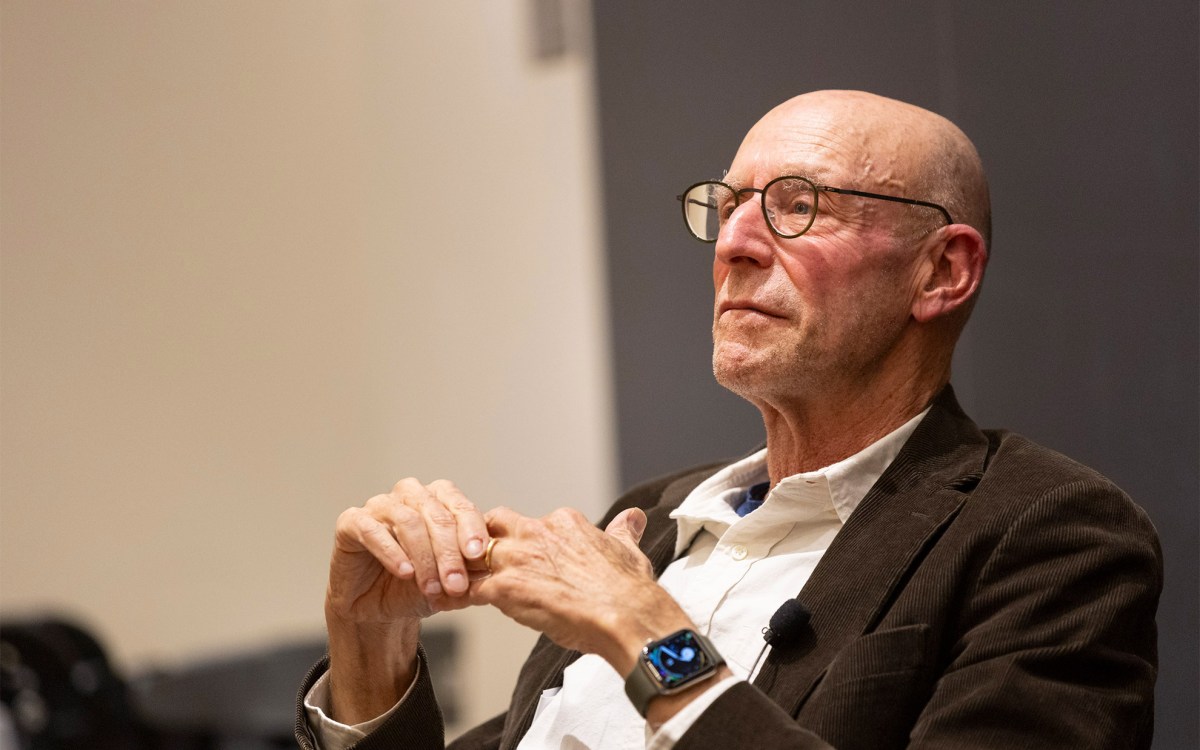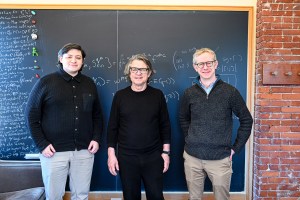The Sustainability Science Program at 10
Previous fellows return to campus to celebrate progress in the field, outline challenges ahead
In 2006, as New Orleans reeled from Hurricane Katrina and Al Gore released “An Inconvenient Truth” to international acclaim and debate, Harvard launched a University-wide program to investigate and strengthen the emerging field of sustainability science.
Based out of the Harvard Kennedy School (HKS), the Sustainability Science Program was envisioned as a catalyst and training ground for generating greater understanding of global sustainable development opportunities by bridging cross-disciplinary academic research with real-world practice and policy design.
The program was one of the earliest anywhere to focus on creating a cadre of young sustainability science scholars. Over the last decade, it has brought together experienced Harvard faculty and graduate students through a robust fellowship program, hosting yearlong visits by 135 master’s, doctoral, and postdoctoral students, as well as government and nongovernmental organization officials, from 30 countries.
“It really has had a tremendous effect on my career,” said Kelsey Jack, an inaugural program fellow who is now a professor of economics at Tufts University. “Being a Ph.D. student is a pretty lonely thing in the social sciences. This program was a way of giving people a home.”
Last weekend, more than 70 fellows came “home,” not only to celebrate the program’s10th anniversary, but also to participate in a research symposium with other fellows to continue the dialogues and problem-solving that were instrumental in shaping and solidifying their academic interests and careers.
The two-day event featured mini-lectures from the fellows about their current work and areas of impact, as well as energetic debate about the most effective pathways to change. The first six case studies presented covered the globe from Kenya to Vietnam, India to Brazil, and a wide range of topics, from strengthening women’s rights and participation in forest-related benefits to eradicating polio with cutting-edge thermal stable vaccines, and emerging investment vehicles that will help nations meet their climate change commitments.
“The remarkable group of alumni fellows represents the very best in the next generation of sustainability scholars and practitioners,” said William Clark, Harvey Brooks Professor of International Science, Public Policy, and Human Development, who directs the sustainability program. “Some are working at the cutting edge of the most urgent and exciting research challenges in the field. Some are out there turning lab discoveries into practical action in the field. Some have emerged as leaders on the institutional and political frontiers of sustainability. And some are doing all of these things at once. It has been an honor, an education, and just plain fun to work with them.”
Clark worked with co-directors Nancy Dickson, Gates Professor of Developing Societies Michael Kremer in the Faculty of Arts and Sciences, and Henry Lee, the Jassim M. Jaidah Family Director of the Environment and Natural Resources Program at HKS to shape a new training program for fellows, inviting them to present their current research or on-the-ground work, discuss readings, or learn from outside experts. Clark and the program also worked closely with Harvard’s Office for Sustainability to embed the core sustainable development principle of enhancing the well-being of people within and across generations into the University’s sustainability plan.
The program also worked to catalyze faculty research, forging new perspectives at the intersection of environment and development, including energy challenges in China, global innovation for neglected populations, or public-private partnerships in India. Since the program launched, it has supported 10 research initiatives, 22 faculty grants from five of Harvard’s Schools, and publication of more than 400 articles, books, and working papers.
“One of the very cool things about this program is that it wasn’t closed to more interdisciplinary work that was related to sustainability,” explained Jack, who co-organized the symposium. “That was one of the things that I saw as a strength of the program: It wasn’t dogmatic. It was open to the idea that it takes all types, many different methods, that they can all be mindful. It cared less about the labels on something and more [about] the questions it’s asking.”
The ripple effect is still spreading. Fellows publish together, and cross paths in academia, government, and business. The field of sustainability science has taken root across the academic establishment over the past decade, and as other training programs proliferate, Harvard’s program is now shifting its focus from hosting fellows to deeper research and other activities that help advance sustainable development.
“I’m using what I learned every day in the fellowship, and I miss it,” said Lucilla Spini, head of science programs at the International Council for Science, who cited the impact the fellowship has had on her career and on the field. “We talk about frameworks, theory, climate change, and all that. At the end of the day, we’re building international dialogue and international cooperation.”






